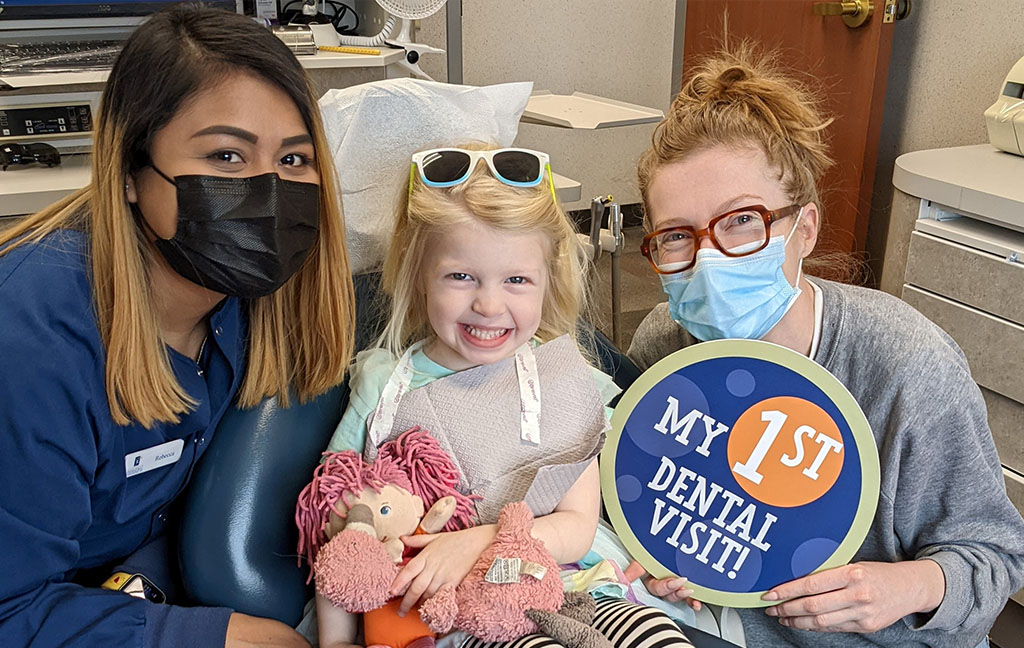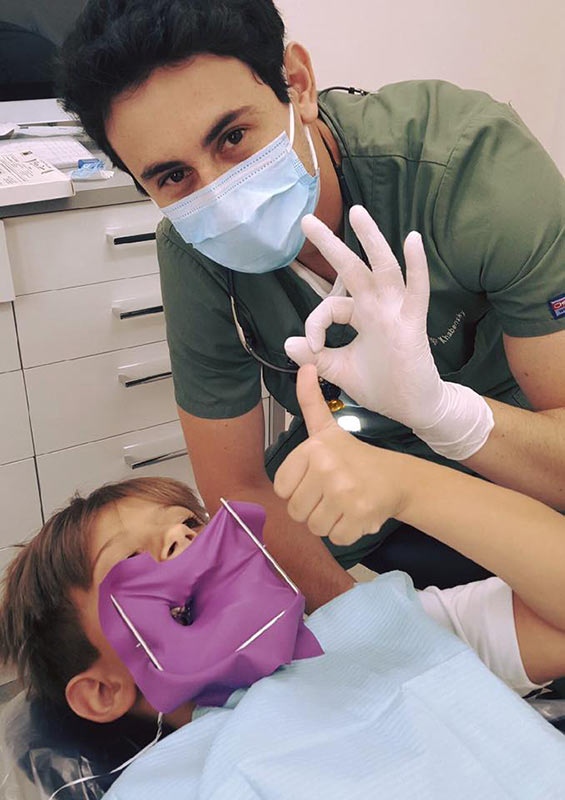A Comprehensive Guide to Pediatric Dental Care and Its Function in Protecting Against Typical Dental Troubles
Understanding pediatric dental care is crucial for establishing a foundation of long-lasting oral health and wellness in children. Early oral brows through, proper oral health methods, and nutritional understanding are critical components that can dramatically minimize the threat of common oral problems such as cavities and malocclusion. By gearing up both caregivers and kids with the required expertise and skills, we can promote healthy and balanced practices that advertise anxiety-free dental experiences. Yet, the question remains: exactly how can these methods be successfully applied to ensure long-term outcomes?
Importance of Very Early Oral Check Outs
Recognizing the significance of very early dental visits can establish the structure for a youngster's lifelong oral health and wellness. Developing a partnership with a pediatric dentist as early as the eruption of the very first tooth, commonly around 6 months old, is vital. These first brows through not just acquaint youngsters with the dental environment but likewise permit very early discovery of possible issues, such as imbalance or cavities.
Very early dental check-ups empower caretakers with important expertise regarding appropriate oral care, dietary suggestions, and the prevention of oral illness. Pediatric dentists are experienced in resolving the distinct needs of children, making sure that they obtain age-appropriate education and learning on oral health. Additionally, these visits offer a chance to go over routines such as thumb-sucking and pacifier usage, which can influence oral advancement.
Crucial Oral Health Practices
Establishing a solid foundation for a child's oral health surpasses routine oral sees; it additionally entails instilling efficient dental hygiene techniques from a very early age. Caregivers and moms and dads play an important role in teaching children correct techniques to preserve their dental health.

Flossing must start when 2 teeth touch, as this avoids plaque build-up in hard-to-reach areas. Moms and dads ought to help their youngsters with cleaning and flossing until they have to do with seven or eight years old to make certain thoroughness.
Furthermore, establishing regular oral check-ups every 6 months enables expert surveillance of oral health and wellness. Instructing children the relevance of oral hygiene and making it a fun, appealing activity can promote long-lasting healthy and balanced behaviors that are essential in protecting against usual oral troubles.

Function of Nutrition in Dental Health
Nourishment plays an essential duty in keeping optimum oral wellness, as the foods youngsters take in can substantially impact the development and strength of their teeth. A well-balanced diet plan rich in vital nutrients is crucial for developing strong enamel and sustaining total dental health and wellness (kid dentist near me). Key nutrients, such as phosphorus, calcium, and vitamin D, are important for the formation of healthy and balanced teeth and bones. Foods like milk products, leafed environment-friendlies, and fortified grains can enhance calcium and phosphorus levels, while exposure to sunlight or dietary resources of vitamin D can boost calcium absorption.
On the other hand, a diet regimen high in sugars and acids can cause harmful results on dental wellness. Sugary snacks and drinks can cultivate the growth of harmful germs visit this site right here in the mouth, bring about raised level of acidity and a greater threat of dental cavity. It is essential for caretakers to motivate much healthier snack options, such as fruits, vegetables, and entire grains, which not just provide needed nutrients however additionally promote saliva production, more shielding teeth.
Common Dental Problems in Children
Dental health problems are a typical problem for many parents, as children can experience a variety of problems that may affect their oral health. One prevalent concern is cavities, or dental caries, which occur from the demineralization of tooth enamel because of acid-producing microorganisms. This problem is usually worsened by bad nutritional practices, such as constant usage of sweet treats and beverages.
An additional common issue is malocclusion, where teeth are misaligned, leading to troubles in attacking, chewing, and talking. Furthermore, gingivitis, an early kind of gum illness, can take place in youngsters, typically due to insufficient dental health methods.
Tooth injuries, including avulsions or cracks, are likewise frequent amongst active youngsters. These can arise from falls, sporting activities, or accidents. Early recognition and intervention are important in taking care of these problems to prevent more issues. Regular oral examinations play a vital function in discovering and attending to these common dental concerns properly.
Structure Lifelong Dental Behaviors
Instilling her response good oral hygiene practices early in life establishes the structure for a lifetime of healthy and balanced teeth and periodontals. Developing a regular routine for brushing and flossing is essential; kids ought to comb their teeth twice a day with fluoride tooth paste and start flossing as soon as two nearby teeth touch. Moms and dads play an important function in modeling these actions, as youngsters often imitate grown-up practices.
Informing children concerning the value of oral treatment can better reinforce these routines. Use interesting techniques, such as stories or interactive video games, to help them comprehend why normal dental check outs and correct hygiene are important. Additionally, introducing a balanced diet plan low in sugar can significantly lower the risk of cavities and advertise dental wellness.
Routine dental check-ups, generally advised every 6 months, give an opportunity for professional assistance and early detection of potential concerns. These sees can also assist youngsters develop a favorable organization with dental treatment. By cultivating these behaviors and perspectives from a young age, moms and dads can empower their children to take responsibility for their dental wellness, inevitably bring about a lifetime of certain smiles and decreased oral issues.
Final Thought

Early oral visits, correct oral hygiene practices, and dietary understanding are crucial parts that can considerably mitigate the risk of usual dental issues such as cavities and malocclusion.Early oral check-ups equip caregivers with important understanding regarding appropriate dental care, dietary suggestions, and the avoidance of oral illness. Regular oral check-ups play an important function in discovering and resolving these common dental issues efficiently.
Early dental sees, along with the application of reliable dental click this link health methods and correct nourishment, considerably contribute to the avoidance of common oral troubles such as dental caries and gingivitis. By instilling favorable dental behaviors from an early age, children are extra likely to experience healthy teeth and gum tissues throughout their lives, eventually promoting a society of dental health that can be maintained into their adult years.